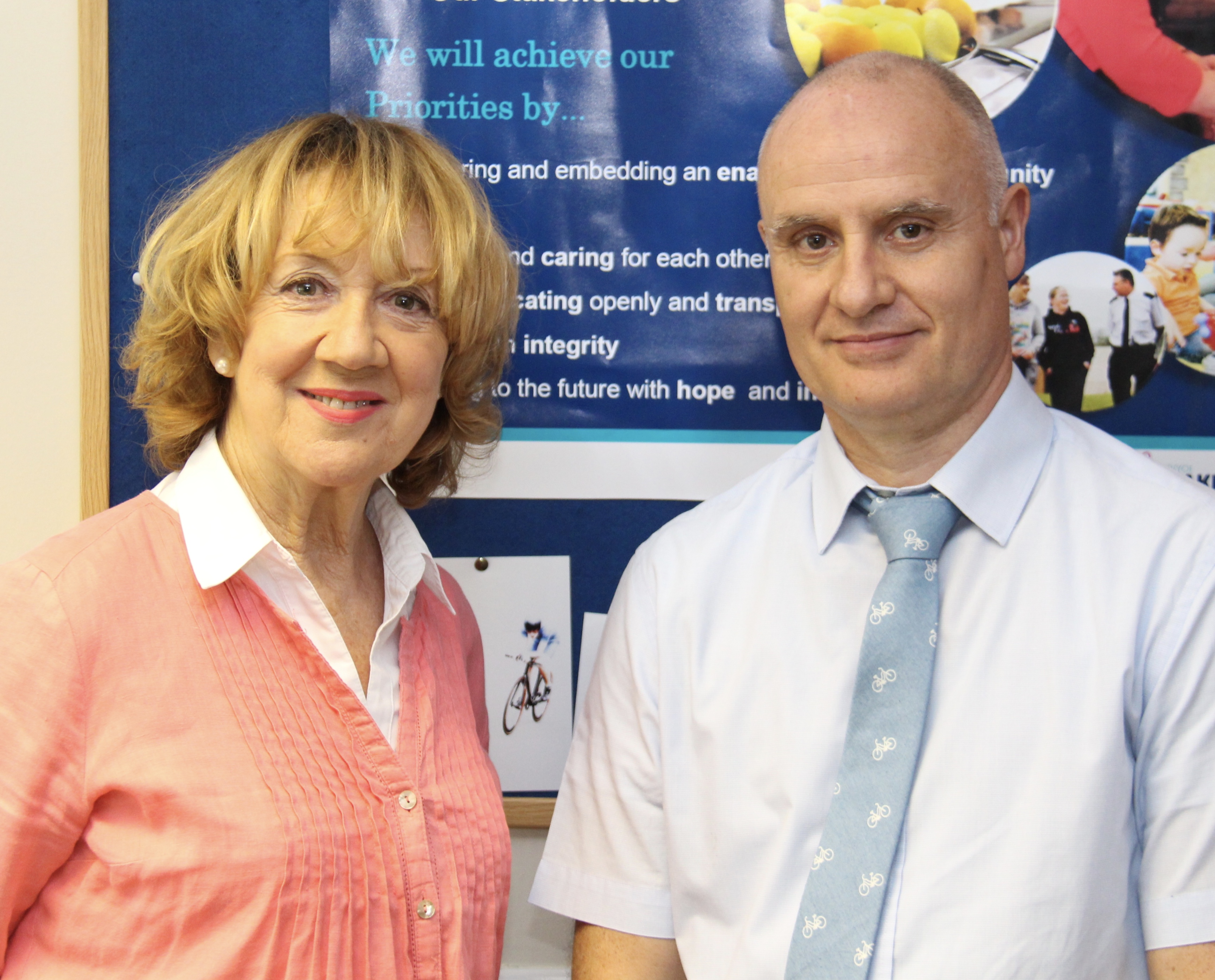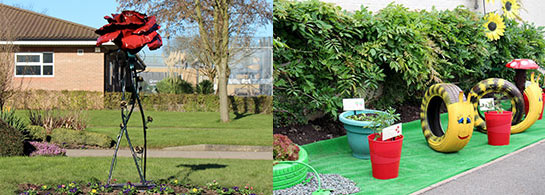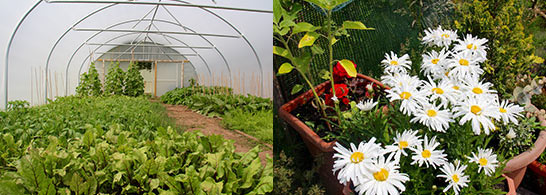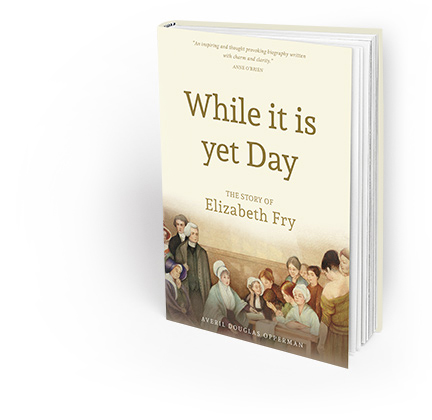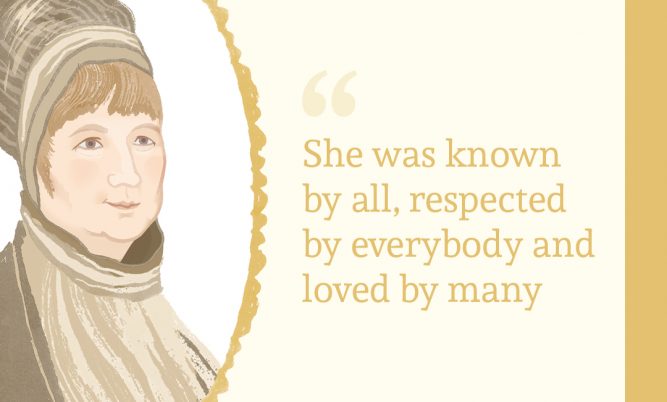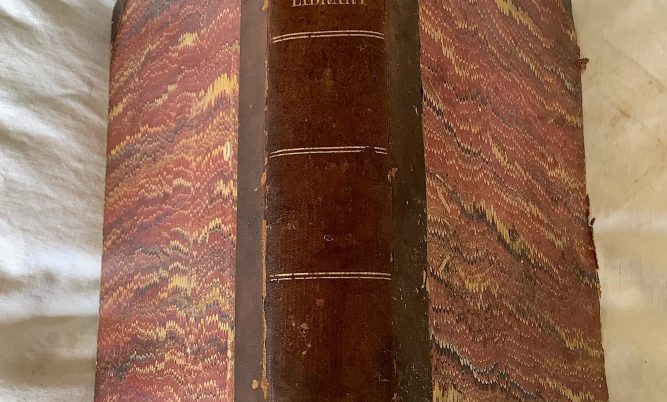It was my first time in prison and I had no idea what to expect.
Any preconceived ideas vanished during the first half hour at Drake Hall Women’s Prison in Staffordshire, where trees, shrubs, lawns and flowerbeds blossomed.
I first met the governor, Carl Hardwick, at an event in London earlier this year and he offered an open invitation to visit his prison. I took him up on it. As he showed me around, he pointed out the new poly-tunnel – “We grow our own vegetables and make our own soup.” The girls can take NVQs (National Vocational Qualifications) in all sorts of subjects, including horticulture.
Arriving at the prison was a little daunting. I couldn’t get into the car park and I couldn’t hear the muffled voice trying to direct me either. In the end, a prison officer came out and explained that the car park was full and I would need to go to an overflow further up the road. Also, I should leave my mobile phone, iPad, tape recorder and shoulder bag in the car. But I needed the tape recorder for my interview with the governor and I needed the iPad to get a photograph of us, I pleaded. Absolutely no mobile phone, end of discussion, but I could bring the iPad and recorder inside for examination.
I walked back to the tall wire security fence surrounding the prison and was buzzed into a small cage and then buzzed on into the prison grounds and the reception hall. A red neon sign rolled above the reception window: no drugs allowed, no mobile phones, chargers, sim cards, tin foil, tools etc, or it could mean up to 12 years in prison for ME!
My devices were checked, including my iPad serial number. The recorder passed muster but my iPad went into a locker in the hall and I was handed the key. The locker was beside a huge amnesty bin for mobile phones. After a short wait, during which time I digested the seriousness of the place I was visiting, I was accompanied up to the governor’s office and we started our tour.
There are currently 315 women in the closed prison and 25 in the open unit, which is within the prison grounds but outside the high fence. Governor Carl is particularly proud of the open unit: it has a 2% re-offending rate compared to about 30% in the main prison. It prepares women for the outside world and even has two self-contained family-friendly flats for women to share precious time with their children.
What struck me immediately was the atmosphere. I hit a good day – of course there are bad ones. It was sunny and dry and out in the grounds there was a campus feel. Women were walking here and there, greeting “Sir”, sometimes with cheeky banter. Carl knew all their names and introduced me to most of them. One girl wanted to know when she could “lose” her shadow, to which he replied: “When you’re ready.” She was on suicide watch and had a prison officer with her at all times.
Like most prisons, there is a drugs problem. About 83 women are currently on methadone maintenance for opiate dependency. “We try and wean them off it and some do so very proudly, and some don’t,” he said. While the women waited outside for the dining room doors to open for lunch, a sniffer Labrador waited inside to check everyone for signs of drugs as they came through. (A dog’s sense of smell is said to be 10 to 100 million times more acute than a human’s!)
Carl added: “If you get drugs into perspective, a lot [of drug users] are masking traumatic events. Drugs are used as an escape from trauma in childhood, adolescence, even adulthood. There are real issues around trauma in offenders.”
There is an international view that healing trauma programmes help. The staff at Drake Hall have had special training to be “trauma informed”. Instead of simply punishing someone who is behaving badly, questions are asked: Why are you behaving like this? What has triggered this behaviour? Then an appropriate punishment can be chosen, if necessary.
Even the offenders are beginning to understand the concept of traumatic events in their past – of which they may not have been aware, but then discover may have influenced their lives and behaviour.
At Drake Hall, the day starts at 7.45am and finishes at 7.30pm (earlier in the Open Unit where most go out to work). Girls can choose an occupation but must participate in; education (the many possible courses include maths and English); in a work place (such as Timpson); in the gym; or with health, fitness and general well-being programmes. After supper, they can relax and socialise either in the gardens or in their houses. One girl kindly showed me her room. It was small but pretty, with all the basics she’d need: a bed, wardrobe, chair, desk/dressing table, window and some paintings.
Some companies have a real sense of social responsibility and the prison works with them closely. Greggs, Halpins and Timpson “are real leading lights that have been very forward thinking about working with offenders and ex-offenders,” Carl said. There is a Timpson workshop at the prison where girls make new bikes and repair old ones. As soon as they sign up, they are provided with a Timpson uniform. On the weekend prior to my visit, the governor had organised a cycling challenge around, and around, the prison perimeter and there was plenty of cheerful talk about the “race”! As well as gardening, horticulture and garden produce, the girls can take a course in re-cycling at an impressive prison facility.
Probably Carl’s most emphatic theory with regard to the NVQs the girls can choose is that motherhood should be included. “We should honour motherhood more and the impact of motherhood on children – rather than [focussing on] the problems finding nursery care,” he said. “Motherhood is not recognised as important by the authorities and that is one thing I would like to see changed. I should be able to say of my women: ‘yes, she is leaving here with skills which make her a better mum.’ And that should be an NVQ of equal value to the others.” He fully respects those women who want a job and career but feels that women who wish to raise their children should receive similar recognition.
With regard to the many groups, voluntary and statutory, which help prisoners, the more practical ones are the most welcome, he feels. For instance, Barrow Cadbury do excellent research and fund events that really matter. At present they have sponsored a brain injury worker at Drake Hall because they recognised that several women have traumatic brain injuries while others have low-level consistent brain injuries because of years of domestic abuse.
It is obvious that Carl is a dynamic governor and proud of what they are all trying to achieve at Drake Hall. Since Holloway Women’s Prison closed, more difficult offenders have arrived and, over the years, the prison has gone from closed to semi-open to closed again. He applauds more emphasis on rehabilitation in prisons and stresses you cannot use a one-size fits all approach. He would like to see more community prisons where women could serve their sentences closer to home, preferably from home. He cannot stress enough the importance of accommodation providers and the need to re-home women when they leave prison. Many lose the ability to continue their rent or mortgage repayments while in prison and then end up homeless. He would like to see the drugs services given greater powers so they could have a real effect on one of the most damaging aspects of prison life.
Finally, Drake Hall is one of the first prisons in the UK to have a branch of the Women’s Institute. It’s a self-sustaining branch encouraged by the Staffordshire WI. Its name? Time for Cake!
